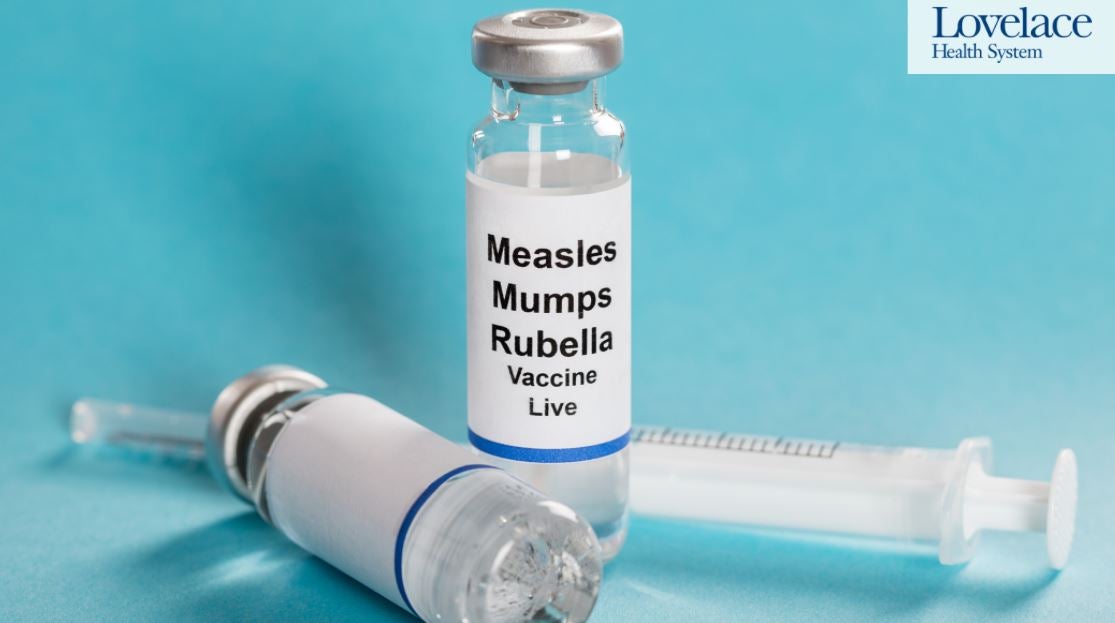You may be hearing a lot about measles lately, and all of this news on TV, social media, Internet, newspapers and magazines may leave you wondering what you as a parent really need to know about this disease. CDC has put together a list of the most important facts about measles for parents like you.
1. Measles can be serious. Some people think of measles as just a little rash and fever that clears up in a few days, but measles can cause serious health complications, especially in children younger than 5 years of age. There is no way to tell in advance the severity of the symptoms your child will experience.
- About 1 in 4 people in the U.S. who get measles will be hospitalized.
- 1 out of every 1,000 people with measles will develop brain swelling, which could lead to brain damage.
- 1 or 2 out of 1,000 people with measles will die, even with the best care.
2. Measles is very contagious. Measles spreads through the air when an infected person coughs or sneezes. It is so contagious that if one person has it, 9 out of 10 people around him or her will also become infected if they are not protected. Your child can get measles just by being in a room where a person with measles has been, even up to two hours after that person has left. An infected person can spread measles to others even before knowing he/she has the disease—from four days before developing the measles rash through four days afterward.
3. You, or your child, can still get measles in United States. Measles was declared eliminated from the U.S. in 2000 thanks to a highly effective vaccination program. There have been several measles outbreaks in the U.S. in recent years. Worldwide, an estimated 20 million people get measles and 146,000 people, mostly children, die from the disease each year. Anyone who is not protected against measles is at risk.
4. Vaccinations work. Don’t let misinformation prevent you from getting the protection you need. You have the power to protect your family against measles with a safe and effective vaccine. Vaccinations are a ritual of childhood, but they aren’t just for kids. Even older adults need to arm themselves against preventable diseases
The CDC vaccination schedule calls for children to receive up to 14 inoculations by the age of six. Many parents distrust these vaccines; worried about the potential for risks and long-term side effects. The 1998 study that raised concerns about a possible link between measles-mumps-rubella (MMR) vaccine and autism was retracted by the journal that published it because it was significantly flawed by bad science. There is no evidence to link vaccines as the cause of autism or SIDS.
The best protection against measles is measles-mumps-rubella (MMR) vaccine. MMR vaccine provides long-lasting protection against all strains of measles. Your child needs two doses of MMR vaccine for best protection:
- The first dose at 12 through 15 months of age
- The second dose 4 through 6 years of age
- If your family is traveling overseas, the vaccine recommendations are a little different:
- If your baby is 6 through 11 months old, he or she should receive 1 dose of MMR vaccine before leaving.
- If your child is 12 months of age or older, he or she will need 2 doses of MMR vaccine (separated by at least 28 days) before departure.
- Adults who received inactivated (killed) measles vaccine or measles vaccine of unknown type during years 1963–1967 should be revaccinated with 1 or 2 doses of MMR.
- Adults who were vaccinated before 1979 with either inactivated mumps vaccine or mumps vaccine of unknown type who are at high risk for mumps infection (e.g., work in a healthcare facility) should be considered for revaccination with 2 doses of MMR at least 28 days apart.
- Pregnant women who do not have evidence of immunity to rubella should receive 1 dose of MMR upon completion of pregnancy
- Non-pregnant women of childbearing age without evidence of rubella immunity should receive 1 dose of MMR.
- If you choose not to vaccinate, there can be risks to you, your family and your community. Please take time to understand your risks, and your responsibilities.
Don’t let misinformation stop you from protecting your family. Talk with your healthcare provider about vaccines and any concerns you may have. If you do not have a primary care provider or a pediatrician, you may call Lovelace Care Concierge to connect with a provider in your community. 505.727.2727. If you need support connecting with a prenatal healthcare provider, contact Lovelace Labor of Love at 505.727.7677.
Resources: American Academy of Pediatrics & Centers for Disease Control

